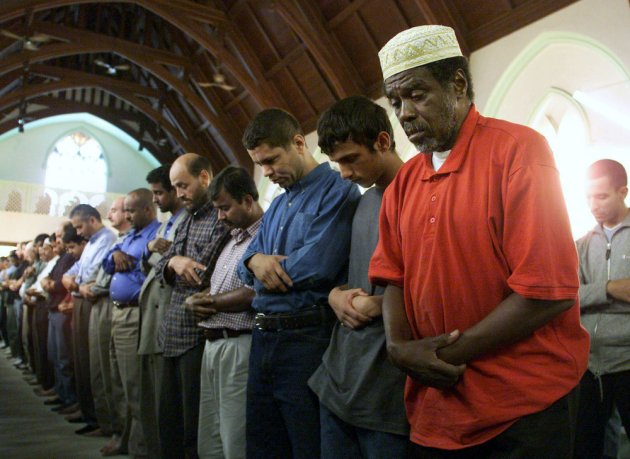
RNA - The findings are part of a new survey released on Wednesday, which suggests that most Canadians understand there is a clear distinction between radicalized Muslims and the community at large.
According to the study released by the Angus Reid Institute, 58 per cent of Canadians believe the Muslim community is a positive force in the battle against radicalization in Canada.
That still leaves a sizable minority (42 per cent) claiming the community is part of the problem.
According to a report published by Daily Brew The numbers skew slightly when they are compiled based on whether the respondent believes radicalized individuals currently live in their community. Those who believe there are, are more likely (53 per cent) to see the Muslim community as part of the problem. Those who don’t believe there are radicals in their neighbourhood are more likely (66 per cent) to see the community as a partner.
The Angus Reid survey also found 73 per cent of Canadians feel that Muslim community leaders should be doing more to speak out against homegrown terrorism.
And when it comes to the acceptance of religious artifacts, there still seems to be a hierarchy of acceptance. While the majority of Canadians supported the wearing of the hijab and nun’s habit (73 per cent and 88 per cent), nearly three-quarters of respondents opposed the public wearing of a niqab, a veil that covers a woman’s entire face.
The Star of David and crucifix were also largely accepted (86 and 89 per cent respectively), while the ceremonial kirpan dagger was opposed by 71 per cent of respondents.
A previous poll commissioned for the series found that slightly more Canadians attributed the recent attacks in Ottawa and Quebec to mental health than terrorism. It was close, though.
According to that poll, 38 per cent of respondents described Michael Zehaf-Bibeau’s attack on Cpl. Nathan Cirillo in Ottawa as an act of mental illness. And 36 per cent called it a terrorist attack.
The findings largely echo the public debate that followed the Ottawa shooting. While the government immediately described the attack as an act of terror, claiming evidence that Zehaf-Bibeau had connections to terrorist ideologies, information already came to light about his past, including a previous arrest under the Mental Health Act, which pointed to mental illness.
The debate about the Muslim community’s role also heated up after the Ottawa attack, with officials reaching out to Muslim leaders across Canada and those same leaders working to become part of the answer.
The National Post recently quoted Middle East analyst Kamran Bokhari, who said during a Coalition of Progressive Canadian Muslim Organizations event that “what we need to do is wage a jihad against jihadism.”
A similar sentiment was shared in the most recent Angus Reid poll. Despite the majority of Canadians saying the Muslim community is a positive force against extremism, 73 per cent of respondents said Muslim leaders are not doing enough to speak out against homegrown terrorism.
The poll results seem to suggest that Canada still has a way to go. Just under half of us believe the Muslim community is part of the problem, and more than that are calling for Muslim leaders to do more to stop terrorism.
This conversation is far from over.
R111/108/B/